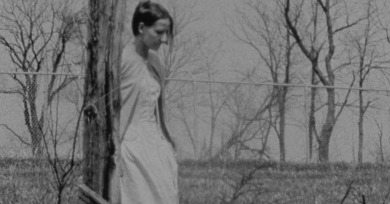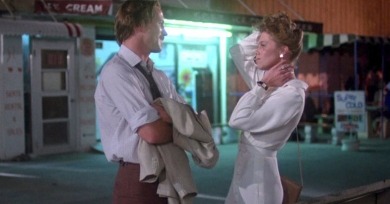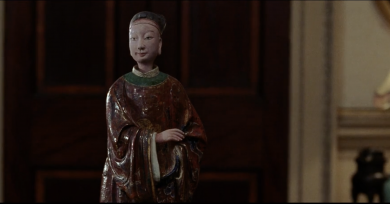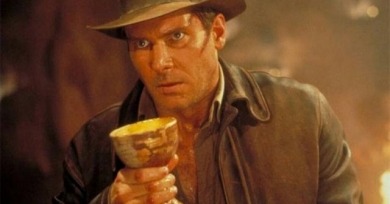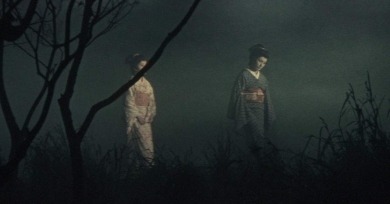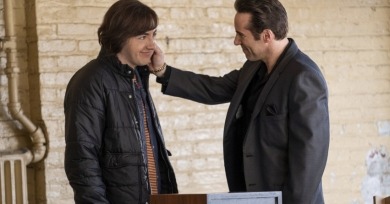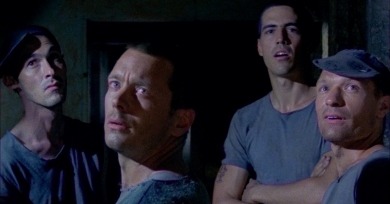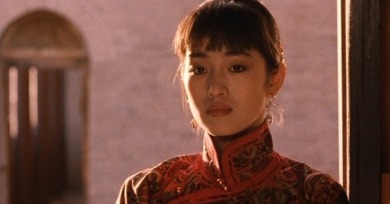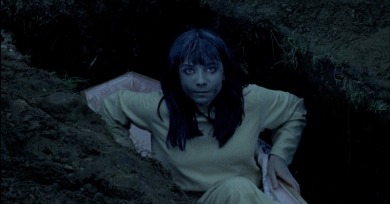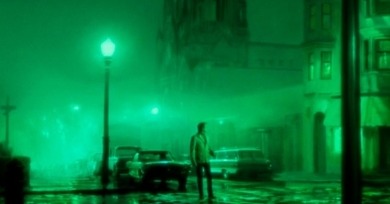Michael Koresky
Sara Driver’s film feels more beholden to the work of Maya Deren and Jean Cocteau than the coming wave of American independent movies that would transform the decade.
Cinematically it is neither here nor there, sandwiched between agreed-upon renaissances. There were marvels, there were duds, there were mediocrities, like any year... Yet we discovered 1981 feels as much like a turning point as it does a middling cinematic interzone.
Even after his string of fictionalized autobiographical films, Davies featured surrogates whose experiences allow him to come to terms (philosophical, aesthetic, moral, sexual, always personal) with a world that has too often betrayed, disappointed, and made shame out of beauty.
Noe uses two cameras to capture all of their travails in intimate close-up, allowing us to see them both at once using split-screen. Such a formally rigorous approach tends to call attention to itself, naturally inviting questions of aesthetics and perception.
Defining (and redefining) contemporary fascism may be a losing game, but identifying the destructive forces of moral conservatism remains as depressingly easy as ever. Another thing that remains vivid: the misogyny at the corrupt core of modern patriarchal life.
It’s never confirmed that the film’s “right” Chinaman is a statue whose head stands still and straight. Yet this remains all a matter of perception, as well as interpretation. The object is thus tactile yet vaguely defined, and leads to a larger question: if the Chinaman doesn’t belong here, then what, or who, does?
What does giving such primacy to the nonhuman and inanimate mean for the other elements onscreen, specifically the human or the animal? What does an object convey? What is its meaning within an art form that is itself so given to fears of impermanence?
A Few Great Pumpkins
Ghost Story of Yotsuya, Lord Shango, Malignant, Dracula, Carnival of Souls, Silent Night Deadly Night 3, When a Stranger Calls
I am left with the feeling that Many Saints is an expression of Chase’s archness run amok, rather than an invitation to immerse myself in a universe like that of The Sopranos, where, like our own, everyone feels put upon, can’t see past their pain, and therefore fail to notice the pain of others.
In this first, five-minute shot of his new film, Days, Tsai Ming-liang reminds us again of why this once youthful but eternally sorrowful man, now in his early fifties, is among the great muses of what we once called cinema.
Despite the brouhaha it caused upon its premiere, the film cannot and should not be reduced to the sensation around it. What’s most radical about it remains intact all these decades later: its aesthetic ambition and its willingness to plunge viewers into a conceptual gambit left completely up to us to decode.
A new Reverse Shot short film creatively documents the private Critical Interventions symposium hosted at Museum on the Moving Image just before the pandemic closed down the world.
Watching it again today, I realize that Zhang Yimou’s film might have worked particularly well for an adolescent viewer because it functions on traditional fairy tale logic.
Maybe rigorous analysis needs always to be leavened with a certain degree of humility. This seems particularly important when we look at films from unfamiliar places and wish to address ideas of culture and place.
“Will haunt you after it’s over . . . makes us think about the role that food plays in our lives—both as social beings and creatures of the earth.” –Vox
His movies are about fraught relationships and breakdowns in communication, but without any histrionics; they often fracture time and chronology, but not in a cloying or self-consciously experimental way. They are so emotionally transparent that they run the risk of being mistaken for simple-minded.
The chaos of the moment feels aptly reflected and deeply felt in both a Bogdanovich slapstick classic from the seventies and a Hammer horrror gem from the sixties.
This column will not simply be about great films we saw in theaters, but about films on which are imprinted the mental traces of the past, of the ineffable experiences of seeing them at a certain point in our personal histories.
In this ongoing column, one writer will send another a new piece of writing about a film they have been watching and pondering over, in the hopes that this will prompt a connection to a different film the other has been watching.
Malick’s filmmaking, especially here and in everything after, strikes me as a way of using the cinematic form to piece together a visual approximation of a world made unknowable by our own perceptions, our own human limitations.
